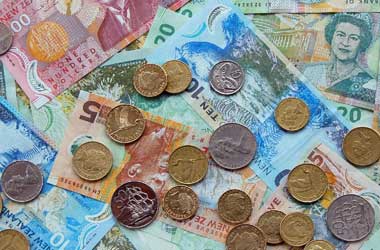 The Colombian peso fell 0.71% against the greenback to close at 3,904.78 Friday following the release of economic data which indicated a sharp economic contraction on y-o-y basis in March 2020. Notably, on yearly basis, the country’s retail sales also shrank in March.
The Colombian peso fell 0.71% against the greenback to close at 3,904.78 Friday following the release of economic data which indicated a sharp economic contraction on y-o-y basis in March 2020. Notably, on yearly basis, the country’s retail sales also shrank in March.
Colombia’s GDP decreased 4.9% y-o-y in March, compared with a downwardly amended 4.6% growth in the earlier month as a countrywide lockdown had a negative impact.
The GDP suffered a blow mainly due to a 12.7% contraction in commercial activities in March, compared with a 10.2% growth in the earlier month.
Similarly, manufacturing contracted by -10.4%, following a growth of 5%. While mining fell -9.90%, compared with 5.3%, financial activities decreased 7.9%, after expanding by 5% in February.
Entertainment sector was also worst affected, with an 11.6% decrease in March, compared with 1.5% in the earlier month. Obviously, Covid-19 pandemic was the primary reason for the contraction.
The Colombian economy contracted 2.4% q-o-q in 1Q20, after growing 0.5% in the earlier period and above market anticipations for a 0.7% decrease.
It was the steepest contraction ever recorded, as coronavirus pandemic had a negative impact on the economy.
Output contracted in construction (-11.4% against 2.1% in 4Q19), manufacturing (-4.5% versus 0.8%), retail & wholesale trade, transportation, hotels & restaurants (-3.2% compared with expansion of 0.4%), public administration, defense, education and health (-1.9% against 1.3% percent) and artistic, entertainment & recreation activities (-3.9% vs unchanged reading).
Furthermore, mining & quarrying output shrank 2.4%, quicker than a 1.3% decline in the prior period.
The country’s GDP expanded 1.1% y-o-y in 1Q20, declining from a downwardly amended 3.4% in the earlier quarter, and missing economists’ forecasts of a 1.5% growth.
It was the weakest expansion since the first-quarter 2017, amid the Covid-19 pandemic.
Output contracted by -9.2% in construction sector, compared with a growth of 0.2% in the previous quarter. Similarly, manufacturing shrank 0.6%, compared with an expansion of 1.4%.
Likewise, mining & quarrying fell 3%, following a 1.8% increase. Entertainment & recreation activities posted a 3.2% decline, compared with a 2.3% expansion in the earlier month.
Furthermore, output growth slowed down in retail & wholesale trade, transportation, hotels & restaurants (0.9% against 4.7%), real estate (2.6% versus 2.9%), professional & technical activities (2.7% compared with 3.8%), finance & insurance (down to 2.1% from 4.6%) and public administration, education, defense and health (3.4% against 4.3%).
On a seasonally adjusted quarterly basis, the GDP contracted at a historical high of 2.4%, after expanding by 0.5% in the earlier quarter.
Furthermore, the country’s retail sales fell 4.8% y-o-y in March, after expanding 13.2% in the earlier month, but better than the 8.6% drop anticipated by economists. It was the biggest decline in retail trade since February 2017, amid business shutdowns and lockdowns due to coronavirus pandemic. 14 out of 19 top retail sectors recorded declines in March.
This includes accessories and lubricants for vehicles (-21%), fuels (-17.1%), clothing & textiles (-45.1%), spare parts, glass & paints (-26.4%), automotive vehicles & motorcycles (-30.5%), hardware items, and footwear & leather goods (-43.8%). On m-o-m basis, retail trade fell 7.7%, after rising by an upwardly amended 1.8%.
In the first-quarter of 2020, retail sales rose 5% on y-o-y basis.




